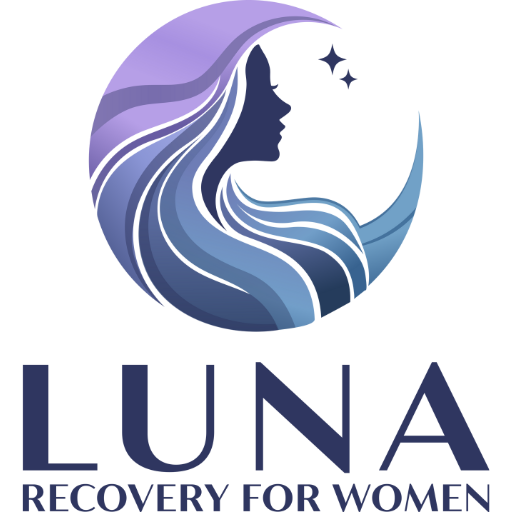Watching someone you love struggle with addiction is heartbreaking and challenging. The desire to help them reclaim control of their life is strong, but knowing how to approach the subject of rehab can be difficult.
Encouraging a loved one to seek treatment requires compassion, patience, and a thoughtful approach. Here’s a guide to help you navigate this delicate situation and support your loved one in taking the first steps toward recovery.
1. Educate Yourself About Addiction and Treatment Options
Before approaching your loved one, it’s essential to educate yourself about addiction and the available treatment options. Understanding that addiction is a disease rather than a moral failing can help you approach the conversation with empathy. Learn about different types of rehab programs, such as inpatient, outpatient, and intensive outpatient programs, so you can offer informed suggestions that suit your loved one’s needs. This knowledge will also help you answer any questions they might have and provide reassurance about the recovery process.
Action to take: Research rehab options, including the benefits of each program type. Luna Recovery for Women offers comprehensive outpatient programs designed to support women at every stage of recovery, making it a great option to present to your loved one.
2. Choose the Right Time and Place

Timing and environment play a crucial role in having a productive conversation about rehab. Choose a time when your loved one is sober, calm, and not preoccupied with other responsibilities. The setting should be private, quiet, and free from distractions, creating a safe space for open dialogue. Avoid bringing up the topic during arguments or moments of high stress, as this can lead to defensiveness and resistance.
Action to take: Plan a time for the conversation when you can speak without interruptions, ensuring both you and your loved one are in a calm, receptive state of mind.
3. Express Your Concerns With Empathy
Approach the conversation with empathy and compassion, focusing on your love and concern rather than blame or criticism. Use “I” statements to express how their addiction affects you and others. This reduces defensiveness and opens the door for honest communication.
Example: Instead of saying, “You’re ruining your life with drugs,” try, “I’m really worried about you because I’ve noticed how much you’ve been using lately, and I’m concerned about your health and happiness.” This approach shows that your concern comes from a place of love rather than judgment.
4. Listen and Be Patient
Listening is just as important as speaking. Allow your loved one to share their thoughts and feelings without interruption or judgment. They may not be ready to admit they have a problem, or they may feel ashamed or scared. By giving them space to express themselves, you demonstrate that you care and are there to support them, no matter what.
Action to take: Practice active listening by maintaining eye contact, nodding, and paraphrasing what they say to show that you’re engaged. Avoid interrupting or jumping to solutions—sometimes, simply being heard can make a significant difference.
5. Offer Solutions, Not Ultimatums
While it’s essential to express your concerns, avoid giving ultimatums or trying to force your loved one into rehab. Instead, present treatment as a positive step toward a healthier, more fulfilling life. Share information about specific rehab programs, including how they can help and what the process involves. Offer to assist with logistics, such as making appointments, attending consultations, or helping with insurance questions.
Action to take: Gather information about Luna Recovery for Women’s outpatient programs, highlighting their personalized approach and supportive environment. Presenting concrete options can make the idea of treatment feel more accessible and less overwhelming.
6. Provide Emotional and Practical Support
Let your loved one know that they won’t have to go through this journey alone. Offer emotional support by reassuring them that you believe in their ability to recover. Provide practical assistance, such as helping them pack for rehab, driving them to appointments, or managing their responsibilities while they focus on treatment.
Action to take: Be clear about the specific ways you’re willing to help. For example, you might say, “I can drive you to your therapy sessions” or “I’ll take care of things at home so you can focus on your recovery.” This shows your loved one that they have a strong support system.
7. Be Prepared for Resistance
It’s common for individuals struggling with addiction to resist the idea of rehab, often due to fear, denial, or uncertainty. If your loved one responds with anger or defensiveness, remain calm and patient. Avoid arguing or becoming frustrated—this will only create more resistance. Instead, continue to offer your support and remind them that help is available whenever they’re ready.
Action to take: If your loved one is hesitant, suggest speaking with a therapist or counselor together. Hearing the benefits of treatment from a professional can help shift their perspective and alleviate some of their fears.
8. Consider Professional Intervention
If your loved one continues to refuse help despite your best efforts, a professional intervention may be necessary. An intervention involves gathering family and friends, along with a trained interventionist, to encourage the individual to seek treatment. While interventions can be emotionally challenging, they are often highly effective when conducted with compassion and care.
Action to take: Research professional interventionists with experience in addiction treatment. Their guidance can help ensure that the intervention is respectful, supportive, and productive, increasing the likelihood that your loved one will agree to seek help.
Get Help at Luna Recovery for Women

Encouraging a loved one to seek rehab is a challenging but essential step in their journey to recovery. By approaching the conversation with empathy, patience, and informed support, you can help them see that treatment is a positive step toward reclaiming their life. Remember that recovery is a process, and your ongoing love and encouragement can make a world of difference.
If you need additional support or guidance, Luna Recovery for Women is here to help. Our compassionate team offers personalized outpatient programs designed to meet the unique needs of women struggling with addiction. We’re dedicated to helping women regain control of their lives through evidence-based therapies, peer support, and holistic care.
Contact Luna Recovery for Women Today
Don’t wait to help your loved one take the first step toward recovery. Contact Luna Recovery for Women today to learn more about our outpatient rehab programs and how we can support both you and your loved one through this journey. Together, we can help your loved one find hope, healing, and a brighter future.


